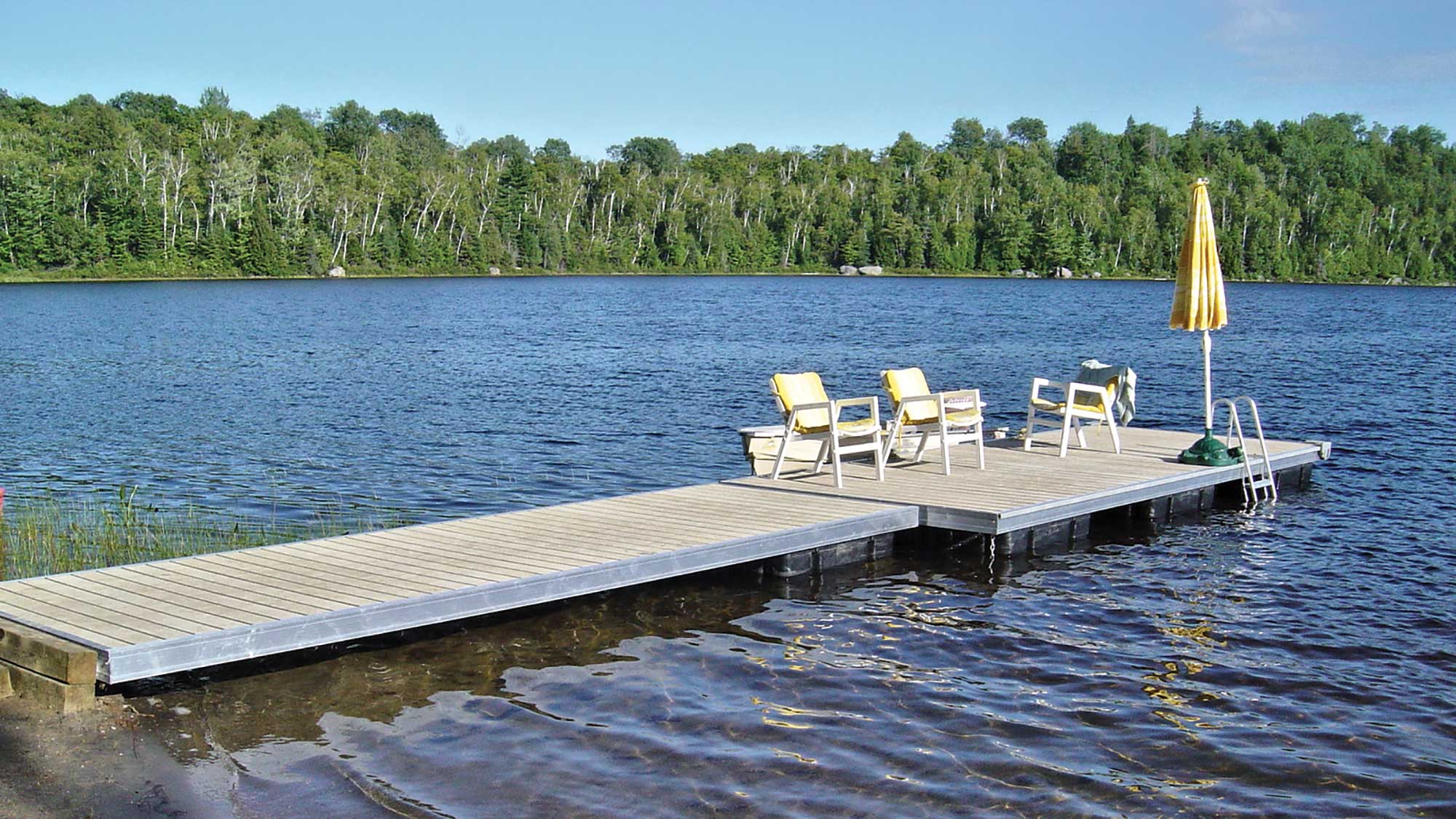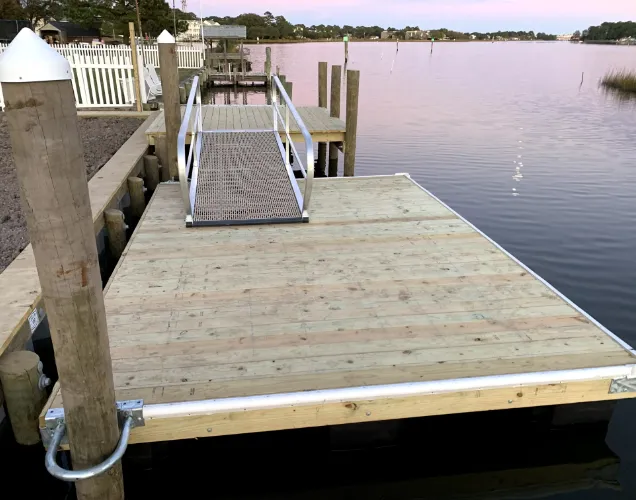Benefits of Dealing With an Established Floating Dock Company for Comfort
Benefits of Dealing With an Established Floating Dock Company for Comfort
Blog Article
Floating Docks: The Ideal Selection for Versatile Water Gain Access To
Floating docks present an engaging option for a variety of water access requires, providing versatility that goes beyond typical mooring options. Their ability to adjust to changing water levels while making certain stability and security makes them specifically beneficial for both leisure and business applications. Furthermore, the modular nature of floating docks promotes modification, accommodating particular needs. However, the nuances of setup and upkeep, together with the variety of applications, call for a closer evaluation to totally value their prospective advantages and ramifications for waterway gain access to approaches.
Advantages of Floating Docks
Floating docks offer various advantages that enhance water access for various applications. Their ability to drop and increase with changing water levels makes them especially advantageous in environments with fluctuating trends or seasonal variations. This adaptability guarantees that vessels can quickly moor without issue for the water's deepness, providing a trusted system for leisure, commercial, and commercial uses.
Furthermore, floating docks are usually built from durable materials that withstand deterioration, making them ideal for long-lasting usage in marine atmospheres. Their installment is generally less intrusive than traditional set docks, reducing the environmental effect and promoting quicker deployment (floating dock services). This flexibility enables easier relocation or reconfiguration according to user requirements or environmental modifications
Security is one more essential benefit; floating docks can provide steady accessibility for people getting off or boarding from watercrafts and minimize the danger of mishaps connected with unsteady surfaces. They can be created to fit a range of devices, such as fenders and cleats, improving functionality. Overall, floating docks represent a reliable option for improving water access throughout varied industries while promoting safety and security and ecological sustainability.

Kinds Of Floating Docks
Numerous types of floating docks satisfy different demands and environments, each created with specific functions to optimize performance. One of the most typical kinds consist of modular docks, which include interlacing sections that permit easy modification and expansion. These docks are optimal for recreational use, as they can be tailored to fit different boat dimensions and water problems.
One more preferred option is the stationary floating dock, which continues to be secured in place however drifts with transforming water degrees. floating dock company. This kind is specifically suited for areas with minimal tidal changes, supplying secure access for fishing or swimming. Additionally, there are drive-on docks, which feature a sloped design that allows boats to easily drive on and off, making them appropriate for personal boat and smaller sized vessels
For industrial applications, sturdy floating docks are offered, built from strengthened products to stand up to substantial lots and rough aquatic settings. Last but not least, eco-friendly floating docks use lasting materials and designs to reduce environmental impact, frequently incorporating features like vegetation to sustain neighborhood wild animals. Understanding the various kinds of floating docks ensures that customers can choose the most ideal remedy for their certain requirements.
Installation Refine Summary
An effective setup of floating docks requires mindful planning and focus to detail to ensure optimum performance and safety and security. The preliminary step entails examining the site problems, consisting of water depth, present, and potential barriers. This assessment educates the choice of the appropriate dock products and design tailored to the details setting.
Following, getting needed authorizations is important, as many jurisdictions have guidelines concerning building and construction on water bodies. Once approvals are protected, the setup can proceed. Begin by preparing the structure, which might include anchoring systems or pilings tailored to the dock type and neighborhood conditions.
Following the foundation configuration, construct the dock sections according to maker requirements. Ensure that all elements are safely attached and aligned to endure ecological stress and anxieties. Position the dock in the designated area, ensuring it is degree and secure.

Upkeep Tips and Ideal Practices
After the setup process is complete, ongoing upkeep plays a crucial function in guaranteeing the longevity and functionality of floating docks. Regular inspections need to be carried out to recognize any type of signs of wear and tear, wear, or damage - dock company. Inspect for any loosened fittings, splits, or separation in the dock sections, as these can compromise structural honesty
Cleaning the dock is essential to eliminate particles, algae, and other accumulation that can affect its look and security. Make use of a mild pressure clean periodically to keep cleanliness without creating damages to the surface. Furthermore, applying a protective sealer every couple of years can assist enhance durability and stand up to environmental wear.
Focus on the mooring lines and anchors, guaranteeing they are protected and free from rust. Change any abject components without delay to avoid dangers. Seasonal changes may likewise be essential; i thought about this during extreme climate problems, enhancing the dock or rearranging can avoid damages.
Applications for Floating Docks
Floating docks serve a plethora of applications, satisfying both business and leisure needs. In recreational setups, they provide seamless accessibility to waterways for activities such as boating, fishing, and swimming. Their flexible nature permits installation in differing water levels, ensuring safe and steady gain access to no go to this website matter tidal changes.
Commercially, floating docks are indispensable for marinas and waterside organizations. They promote the docking of vessels, enabling reliable filling and discharging of products. Their modular design permits easy development or reconfiguration to accommodate changing business needs, making them perfect for boat rentals, tour operations, or fishing charters.
Additionally, floating docks are made use of in ecological applications such as marine research study and environment repair. They can serve as platforms for scientific researches, monitoring water quality, or performing wild animals studies without troubling delicate environments.
In commercial contexts, floating docks are used in building jobs, offering accessibility to hard-to-reach locations for devices and personnel. Their convenience, durability, and marginal influence on the setting make them an optimal option for a vast array of applications, boosting both functionality and access in different water-based atmospheres.
Final Thought
In verdict, floating docks stand for an ideal option for diverse water accessibility needs, owing to their flexibility, sturdiness, and modular design. Floating docks serve as a beneficial asset for recreational, commercial, and environmental tasks, making certain dependable accessibility to rivers and advertising sustainable techniques in aquatic atmospheres.
Floating docks present a compelling service for visit here a selection of water access requires, providing convenience that goes beyond typical mooring options.Floating docks offer numerous advantages that enhance water accessibility for numerous applications. In general, floating docks represent an efficient option for boosting water gain access to throughout diverse sectors while promoting security and environmental sustainability.
An additional popular option is the fixed floating dock, which continues to be secured in place yet drifts with transforming water degrees.In conclusion, floating docks stand for an optimal service for varied water accessibility needs, owing to their adaptability, resilience, and modular design.
Report this page